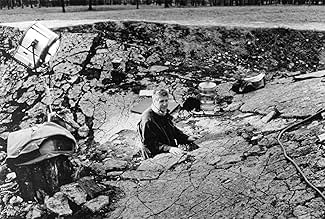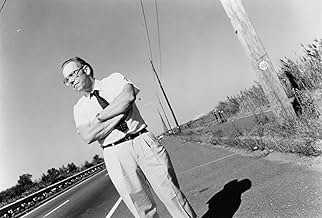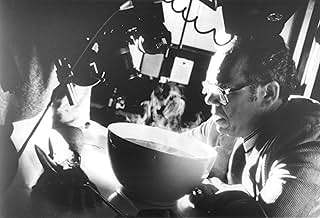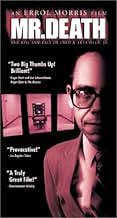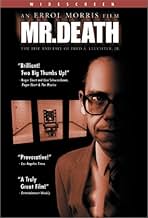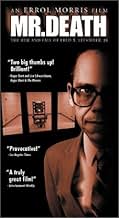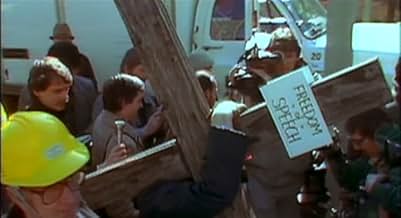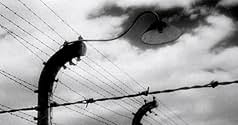Mr. Death - Grandeur et décadence de Fred A. Leuchter Jr.
Titre original : Mr. Death: The Rise and Fall of Fred A. Leuchter, Jr.
- 1999
- Tous publics
- 1h 31min
NOTE IMDb
7,5/10
5,9 k
MA NOTE
Ajouter une intrigue dans votre langueA cinematic portrait of the life and career of the infamous American execution device designer and holocaust denier.A cinematic portrait of the life and career of the infamous American execution device designer and holocaust denier.A cinematic portrait of the life and career of the infamous American execution device designer and holocaust denier.
- Récompenses
- 1 victoire et 8 nominations au total
Fred A. Leuchter Jr.
- Self
- (as Fred Leuchter)
Caroline Leuchter
- Self
- (voix)
Adolf Hitler
- Self - Leaves Plane
- (images d'archives)
- (non crédité)
Errol Morris
- Self - Interviewer
- (voix)
- (non crédité)
Avis à la une
Fred A. Leuchter, Jr., the subject of this documentary, is a lonely man, and so a man of narrow acumen, because he's just appreciative to be liked, even by Nazi sympathizers. Errol Morris conjoins montages and music into a movie that is more reflection than subjective report. Fred Leuchter, the son of a prison warden, relatively floundered into the Death Row business. An engineer by training, he was inspired by the urge for more competent and compassionate execution apparatuses. He'd seen electric chairs that fried their sufferers without killing them, poison gas chambers that endangered the witnesses, gallows not efficiently constructed to break the neck. He went to work fashioning better versions of these devices, and soon prisons throughout the US were taking his council.
Notwithstanding his advance in trade, he was not, we understand, particularly well-received socially, though he does come to marry a waitress he meets owing to his habit of more than forty cups of coffee a day. We hear her offscreen voice as she balks at Fred's belief that their trip to Auschwitz was their honeymoon, where she had to wait in a freezing car, looking out for guards. Leuchter's visit to Auschwitz was the crossroads in his work. He was asked by a neo-Nazi Holocaust denier to provide a professional opinion at his trial. Zundel financed Leuchter's 1988 trip, where he chiseled off chunks of brick and mortar in buildings used as gas chambers and had them examined for leftover cyanide. He resolves that the chambers never had capacity for gas.
There is a fault in his report, needless to say. The lab technician who analyzed the samples for him protests that cyanide would sink into bricks but to the measure of one-tenth of a hair. By chiseling large bits, Leuchter had eroded his sampling by several thousand times, not even taking into account the ravages of half a century. To find cyanide would have been supernatural. No bother. Leuchter became a darling after-dinner mouthpiece in the neo-Nazi circle, and the camera captures how his face illuminates and his whole body appears to embrace their cheers and ovations, how thrilled he is to shake hands with his new friends. Other people might recoil from the derelict position of a Holocaust denier, to say the least. An executioner is a derelict anyway and finds his friends where he can.
No filmmaker can be accountable for those reluctant or unfit to take in his or her film with a discerning view. Anyone who leaves this deeply unsettling film concurring with Leuchter lays claim with him on the verge of psychosis. What's unsettling about the film is the way Leuchter is fairly honorable up till the point at which the neo-Nazis sink their talons into him. Those who are revolted by ethnic cleansing and other forms of government-sponsored genocide sometimes have no pangs when the state executes them one by one, testing them on elephants as is appallingly shown early in this film through dog-eared stock footage. One can even be a two-term president after governing the most restless American Death Row on record.
In cinema, the Holocaust intensifies melodrama in that the conquest of the soul never struck so victorious against atrocity, because the atrocity is so confounding. Morris's haunting documentary tries to do something distinct. It's to attempt to penetrate the thought process of denial. You meditate on the general concept of denial, not as some postwar sensation but as something that was intrinsic in the undertaking itself. Those people did those things. The mystery is how. It's about deciphering why Fred Leuchter holds these beliefs.
There is paradox in of so many U.S. states heaping tax money on this guy's work, just to oust him because of his distasteful affiliations. The capability of so many people to live contentedly with the notion of capital punishment may be a hint to how so many Europeans could live with the Holocaust: When you swallow the idea that the state has the right to kill someone and the right to decide what is a cardinal wrongdoing, you're nearly there. Mr. Death offers no complacent position of judgment. He doesn't make it obvious for us with light ethical categorizations, because people are formidably paradoxical and can get their minds around fearsomely peculiar notions.
Notwithstanding his advance in trade, he was not, we understand, particularly well-received socially, though he does come to marry a waitress he meets owing to his habit of more than forty cups of coffee a day. We hear her offscreen voice as she balks at Fred's belief that their trip to Auschwitz was their honeymoon, where she had to wait in a freezing car, looking out for guards. Leuchter's visit to Auschwitz was the crossroads in his work. He was asked by a neo-Nazi Holocaust denier to provide a professional opinion at his trial. Zundel financed Leuchter's 1988 trip, where he chiseled off chunks of brick and mortar in buildings used as gas chambers and had them examined for leftover cyanide. He resolves that the chambers never had capacity for gas.
There is a fault in his report, needless to say. The lab technician who analyzed the samples for him protests that cyanide would sink into bricks but to the measure of one-tenth of a hair. By chiseling large bits, Leuchter had eroded his sampling by several thousand times, not even taking into account the ravages of half a century. To find cyanide would have been supernatural. No bother. Leuchter became a darling after-dinner mouthpiece in the neo-Nazi circle, and the camera captures how his face illuminates and his whole body appears to embrace their cheers and ovations, how thrilled he is to shake hands with his new friends. Other people might recoil from the derelict position of a Holocaust denier, to say the least. An executioner is a derelict anyway and finds his friends where he can.
No filmmaker can be accountable for those reluctant or unfit to take in his or her film with a discerning view. Anyone who leaves this deeply unsettling film concurring with Leuchter lays claim with him on the verge of psychosis. What's unsettling about the film is the way Leuchter is fairly honorable up till the point at which the neo-Nazis sink their talons into him. Those who are revolted by ethnic cleansing and other forms of government-sponsored genocide sometimes have no pangs when the state executes them one by one, testing them on elephants as is appallingly shown early in this film through dog-eared stock footage. One can even be a two-term president after governing the most restless American Death Row on record.
In cinema, the Holocaust intensifies melodrama in that the conquest of the soul never struck so victorious against atrocity, because the atrocity is so confounding. Morris's haunting documentary tries to do something distinct. It's to attempt to penetrate the thought process of denial. You meditate on the general concept of denial, not as some postwar sensation but as something that was intrinsic in the undertaking itself. Those people did those things. The mystery is how. It's about deciphering why Fred Leuchter holds these beliefs.
There is paradox in of so many U.S. states heaping tax money on this guy's work, just to oust him because of his distasteful affiliations. The capability of so many people to live contentedly with the notion of capital punishment may be a hint to how so many Europeans could live with the Holocaust: When you swallow the idea that the state has the right to kill someone and the right to decide what is a cardinal wrongdoing, you're nearly there. Mr. Death offers no complacent position of judgment. He doesn't make it obvious for us with light ethical categorizations, because people are formidably paradoxical and can get their minds around fearsomely peculiar notions.
He seems to be concocted by a joint effort between Flannery O'Connor and Philip Roth: Fred A. Leuchter, Jr. builds more humane death technology. He brings electric chairs into the twentieth century and suggests that TV sets be brought into the killing room for the victims of lethal injection. For a while, the director Errol Morris is fascinated by the visual properties of geeky, big-gummed, brown-suited Fred, who reveals his churning interior self in only one way: he confesses to consuming forty cups of coffee and six packs of cigarettes a day. He seems like the obsessive, narrowly niche-defined folk of Morris' FAST, CHEAP AND OUT OF CONTROL--AI geeks and topiary gardeners. Then history intervenes.
A Holocaust denier on trial for libel in Canada calls Fred as his star witness, proclaiming this mix of Babbitt and Kevorkian as a world-class expert. And so Fred takes his bride (the waitress who served him his daily forty cups) on a honeymoon to Auschwitz, where, in an almost comic act of desecration, he hacks chunks of brick from the deathhouse walls to prove they contain no Zyklon B. After pride cometh a fall, and Fred is ruined--and in the process Morris has minted a meditation on the roots of evil that joins together "Twin Peaks" and Sophocles.
The most tightly focussed and probably the best of Morris' documentary features, MR. DEATH is probably the most eloquent spokesman of Morris' continuing theme--the metaphysical delusions ordinary mortals use to get through their very mortal days and nights.
A Holocaust denier on trial for libel in Canada calls Fred as his star witness, proclaiming this mix of Babbitt and Kevorkian as a world-class expert. And so Fred takes his bride (the waitress who served him his daily forty cups) on a honeymoon to Auschwitz, where, in an almost comic act of desecration, he hacks chunks of brick from the deathhouse walls to prove they contain no Zyklon B. After pride cometh a fall, and Fred is ruined--and in the process Morris has minted a meditation on the roots of evil that joins together "Twin Peaks" and Sophocles.
The most tightly focussed and probably the best of Morris' documentary features, MR. DEATH is probably the most eloquent spokesman of Morris' continuing theme--the metaphysical delusions ordinary mortals use to get through their very mortal days and nights.
This documentary presents the story of the rise and fall of Fred Leuchter, an apparently self-taught engineer specializing in the repair and fabrication of instruments of capital punishment. His choice to develop evidence to deny the existence of gas chambers at Auschwitz, Poland causes a descent into villainy and subsequent ostracism from his clients and his wife.
Several of Leuchter's detractors are interviewed in the film and vilify him as an anti-Semite and a perpetrator of a cruel hoax. His supporters portray him as the second coming of Christ and a man worthy of equal footing with George Washington. If Leuchter actually was aware of his place in the events that led to his downfall, then one could assume he falls somewhere between the two extremes. But this film amply demonstrates that in many ways, Fred in a class by himself.
This little man from Massachusetts grew up around the prison where his father worked, and he saw the daily life of both inmates and guards. He came to see both groups as his friends, and later in his life he chose to research ways to make execution equipment safer and more humane, not only for the inmates being executed, but also for the guards that have to deal with the psychologically disturbing business of execution.
Over time, he became prominent in his field, and was recognized as perhaps the only expert in the United States on repairing and building execution devices. It was this expertise that drew the attention of holocaust denier Ernst Zundel, who was on trial in Canada for publishing a document entitled "Did Six Million Really Die?", which the government of Canada argued was published with deliberate lies about Nazi execution of Jews. Leuchter was approached as an expert on execution and was asked to journey to Auschwitz to develop evidence to disprove that the crematories at that most infamous of concentration camps was used as execution chambers.
It is here that the mystery of Fred Leuchter begins. In the film, a holocaust denier relates a conversation he had with Leuchter in which he had asked Fred about his illegal and highly distasteful excavations at Auschwitz. Leuchter replied, "It wasn't what I found, but what I didn't find that blew me away." It is this statement that rings in my head when I try to examine Fred Leuchter's actions. Why didn't he think about what was being asked of him? Why didn't he see this inquiry in the larger scale of the history of the Second World War, and indeed in the history of civilization? Since he was so deliberate and so thoughtful in his research in to execution equipment, why did he not research the subject of the gas chambers at Auschwitz more thoroughly? Journalist Van Pelt explains that all he had to do was examine the archives at the camp to discover a wealth of information that the Nazis put together about the subject of the "gassing basements". Leuchter obviously understood nothing about the subject of chemistry (an absolutely necessary discipline to begin addressing the presence of cyanide on the bricks of the camp), and yet he took the job of disproving the existence of gas chambers. Why?
This is the area where Errol Morris' skill as a documentarian really shines. He shows Fred lurching around at various white supremacist meetings to discuss the findings of his report, apparently unaware of agenda he was sent to justify. As a thoughtful and deliberate man, he came to the conclusion that the chambers at Auschwitz could not have been used as execution chambers, but obviously uses his own narrow view point to reach that conclusion, since (in his opinion) if he had designed such a device for mass execution he would not have built it that way. He doesn't understand that he was pushed to present a certain result, and that the individuals that wanted justification for their viewpoints were not to be trusted. Morris lets us see all the swirling action around Leuchter, and demonstrates that Leuchter himself was unable or unwilling to see his place in the madness surrounding the trial, as well as demonstrating that Fred couldn't fully understand why state governments were suddenly unwilling to deal with him, killing his business as an execution engineer.
Leuchter's detractors took pains to ruin his life which, in a country that thrives on free speech and the open expression of ideas, is as shameful an act as Leuchter's own foolish holocaust denial. But an interviewee stated eloquently in the film that Fred had the chance to retract his statements. Fred at any time could have limited his involvement with the project. He should have conducted his investigation in the full light of day rather than slinking around a vitally important historical site, chopping up pieces of what many consider a holy shine to the lives of those callously murdered there. He could have done many things that any rational and considerate person should have done.
But he didn't.
Morris' film is one of the best examinations of a person's life committed to film. Highly recommended.
Several of Leuchter's detractors are interviewed in the film and vilify him as an anti-Semite and a perpetrator of a cruel hoax. His supporters portray him as the second coming of Christ and a man worthy of equal footing with George Washington. If Leuchter actually was aware of his place in the events that led to his downfall, then one could assume he falls somewhere between the two extremes. But this film amply demonstrates that in many ways, Fred in a class by himself.
This little man from Massachusetts grew up around the prison where his father worked, and he saw the daily life of both inmates and guards. He came to see both groups as his friends, and later in his life he chose to research ways to make execution equipment safer and more humane, not only for the inmates being executed, but also for the guards that have to deal with the psychologically disturbing business of execution.
Over time, he became prominent in his field, and was recognized as perhaps the only expert in the United States on repairing and building execution devices. It was this expertise that drew the attention of holocaust denier Ernst Zundel, who was on trial in Canada for publishing a document entitled "Did Six Million Really Die?", which the government of Canada argued was published with deliberate lies about Nazi execution of Jews. Leuchter was approached as an expert on execution and was asked to journey to Auschwitz to develop evidence to disprove that the crematories at that most infamous of concentration camps was used as execution chambers.
It is here that the mystery of Fred Leuchter begins. In the film, a holocaust denier relates a conversation he had with Leuchter in which he had asked Fred about his illegal and highly distasteful excavations at Auschwitz. Leuchter replied, "It wasn't what I found, but what I didn't find that blew me away." It is this statement that rings in my head when I try to examine Fred Leuchter's actions. Why didn't he think about what was being asked of him? Why didn't he see this inquiry in the larger scale of the history of the Second World War, and indeed in the history of civilization? Since he was so deliberate and so thoughtful in his research in to execution equipment, why did he not research the subject of the gas chambers at Auschwitz more thoroughly? Journalist Van Pelt explains that all he had to do was examine the archives at the camp to discover a wealth of information that the Nazis put together about the subject of the "gassing basements". Leuchter obviously understood nothing about the subject of chemistry (an absolutely necessary discipline to begin addressing the presence of cyanide on the bricks of the camp), and yet he took the job of disproving the existence of gas chambers. Why?
This is the area where Errol Morris' skill as a documentarian really shines. He shows Fred lurching around at various white supremacist meetings to discuss the findings of his report, apparently unaware of agenda he was sent to justify. As a thoughtful and deliberate man, he came to the conclusion that the chambers at Auschwitz could not have been used as execution chambers, but obviously uses his own narrow view point to reach that conclusion, since (in his opinion) if he had designed such a device for mass execution he would not have built it that way. He doesn't understand that he was pushed to present a certain result, and that the individuals that wanted justification for their viewpoints were not to be trusted. Morris lets us see all the swirling action around Leuchter, and demonstrates that Leuchter himself was unable or unwilling to see his place in the madness surrounding the trial, as well as demonstrating that Fred couldn't fully understand why state governments were suddenly unwilling to deal with him, killing his business as an execution engineer.
Leuchter's detractors took pains to ruin his life which, in a country that thrives on free speech and the open expression of ideas, is as shameful an act as Leuchter's own foolish holocaust denial. But an interviewee stated eloquently in the film that Fred had the chance to retract his statements. Fred at any time could have limited his involvement with the project. He should have conducted his investigation in the full light of day rather than slinking around a vitally important historical site, chopping up pieces of what many consider a holy shine to the lives of those callously murdered there. He could have done many things that any rational and considerate person should have done.
But he didn't.
Morris' film is one of the best examinations of a person's life committed to film. Highly recommended.
This is the story about how the world's foremost authority on gas chambers and all methods of executions proved that the Nazi "gas chambers" could have never operated the way historians claim. It completely destroyed his life, proving that Jews control the world. I assume Errol Morris wasn't intending on letting his feelings be known but it seems like he tries hard to make Leuchter look like a bad man and he consistently fails. It's really strange that he would make dramatic recreations of stuff that happened. That has no place in a documentary. The most interesting thing about the movie is that everyone who tries to discredit or insult Leuchter has absolutely no facts or real argument. They can only say things like he "desecrated a holy land" or "wasn't qualified". After the Jewish man who did the tests on the concrete samples and then testified that his results and report were 100% accurate and true, found out what the trial was about, he quickly says that he performed the wrong tests. The only argument anyone can muster is "you have to be crazy to say this". They claim Leuchter just wanted the spotlight but it's very clear that's not true. He was dragged into a court case and provided expert testimony, without bias. The only accurate statement his detractors made is that he came from nowhere and returned to nowhere. It's not only true, it's all he wanted and it doesn't even matter. This movie proves he is right.
I have never seen a movie handle moral ambiguity quite like this before. It's ambiguous on so many levels. FL Jr. worries about the humanity of the methods of execution, and it never occurs to him that the act itself is inhumane. The obvious hatred in the face of Shelly Shapiro (leader of a Holocaust remembrance group) makes you wince at the moral ambiguity of her acts. And finally that this mouse of a man is neither Jesus nor Hitler (two comparisons made in the film) is the only firm footing you are left with. Not earth-shattering, but what a film!
Le saviez-vous
- AnecdotesAccording to A Brief History of Errol Morris (2000), Morris made a rough cut that he showed to colleagues and friends that only had Leuchter interviewed and it was Morris' intention that the audience would understand he was saying things either as lies or flat-out wrong. He was advised to go to Auschwitz and dig deeper so that there would be no doubt for the audience that Leuchter was wrong.
- Citations
Fred A. Leuchter Jr.: The human body is not easy to destroy and it's not easy to take a life humanely and painlessly without doing a great deal of damage to the individual's body.
Meilleurs choix
Connectez-vous pour évaluer et suivre la liste de favoris afin de recevoir des recommandations personnalisées
- How long is Mr. Death: The Rise and Fall of Fred A. Leuchter, Jr.?Alimenté par Alexa
Détails
- Date de sortie
- Pays d’origine
- Langue
- Aussi connu sous le nom de
- Mr. Death: The Rise and Fall of Fred A. Leuchter, Jr.
- Lieux de tournage
- Sociétés de production
- Voir plus de crédits d'entreprise sur IMDbPro
Box-office
- Montant brut aux États-Unis et au Canada
- 507 941 $US
- Week-end de sortie aux États-Unis et au Canada
- 24 125 $US
- 2 janv. 2000
- Montant brut mondial
- 507 941 $US
- Durée1 heure 31 minutes
- Couleur
- Mixage
- Rapport de forme
- 1.85 : 1
Contribuer à cette page
Suggérer une modification ou ajouter du contenu manquant

Lacune principale
By what name was Mr. Death - Grandeur et décadence de Fred A. Leuchter Jr. (1999) officially released in Canada in English?
Répondre
